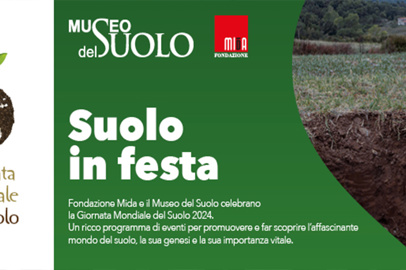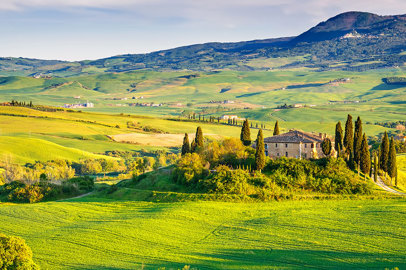06 June 2024
1/6 of humanity's food at risk, according to new UNCCD report
A report highlights severe degradation of global grazing lands threatening food supply and carbon reserves
A new report from the UNCCD (United Nations Convention to Combat Desertification) reveals that 50% of all grazing lands (open lands used for grazing or animal hunting, covering 54% of the world's land area) are degraded. This situation threatens 1/6 of the world's food supply and 1/3 of Earth's carbon reserves.
The report, published last week, indicates that degradation is primarily caused by land use changes, such as the conversion of grazing lands into cultivated lands, increased demand for food, fibers, and fuels, overgrazing, abandonment, and policies promoting excessive exploitation.
Grazing lands are often poorly understood, and the lack of public awareness and reliable data compromises the sustainable management of their immense value for food supply and climate regulation.
Urgent need for increased Soil Organic matter
In light of the new report, Praveena Sridhar, CTO of the Save Soil movement, emphasized the importance of increasing soil organic matter to protect grazing lands and the global food system: “Regenerative agricultural practices that increase organic matter in our soils can restore many of our grazing lands and ensure that our existing cultivated lands can produce more nutrient-rich food for the growing world population without further expansion.”
The Save Soil movement has cataloged and published sustainable soil management practices for grazing lands and foraging areas that restore native vegetation cover and biodiversity both above and below the soil, benefiting herders and their livestock. An example of such practice is rotational grazing, a type of regenerative management for the protection of grazing lands.
Looking Ahead to COP16
Experts point to the UNCCD COP16, to be held in Riyadh in December, as a crucial moment for concerted political action to protect existing grasslands and agricultural lands.
“We must understand the socio-economic conditions of pastoral communities and support them by recognizing their valuable traditional knowledge and their contribution to society and ecology. Equipping them with tools for sustainable pasture management and funding incentives to support their restoration efforts is essential. COP16 is a crucial moment for global action in this direction, and we are aligned with the UNCCD and agree with its key points of intervention.” - Praveena Sridhar.
“Pastures, herders, and the livestock they depend on are usually underappreciated... Despite an estimated half a billion individuals worldwide, pastoral communities are often neglected, have no voice in policy-making processes that directly affect their livelihoods, are marginalized, and are often even seen as strangers to their own lands.” - Ibrahim Thiaw, UNCCD Executive Secretary
Success stories in sustainable agriculture
Kelvin Jones, a fifth-generation dairy farmer in the Murray Darling Basin, Australia, uses regenerative agricultural practices on his family farm to improve environmental and financial sustainability outcomes. Kel practices rotational grazing, no-till cropping, water recycling, and precision farming to reduce production costs, increase profitability, and promote soil health.
“I want to do everything I can to show that farmers care about the environment, food production, and soil health. Healthy soil is not only good for the environment but also for profits.” - Kelvin Jones
For more information about Sadhguru and the Save Soil movement, visit savesoil.org and follow @ConsciousPlanetMovement and @CPSaveSoil on social media or write to contact.it@consciousplanet.org
Edited by editorial staff, Avion Tourism Magazine
Text source: Copyright © Conscious Planet Save Soil Press
Photo Visual: Sisterscom.com / Depositphotos
|
Conscious Planet Save the Soil is the movement, and each one of us can become an active part by staying informed, promoting the movement, participating in events, and raising awareness among politicians. Learn more about the movement and how to become an Earth Buddy.
|
You might be interested in
Sustainability

Save Soil
The Soil Museum in the province of Salerno
The only museum in Italy, on the occasion of World Soil Day it presents conferences, meetings, visits and free workshops to discover its genesis and vital importance
Sustainability

Save Soil
Restoring soil health: the key to a more sustainable Italy and climate
Experts at COP29 highlight the urgency of regenerating soils to combat climate change and ensure environmental and food security
Sustainability

Save Soil
Close link between soil quality and human health
Save the Soil movement calls for urgent policy action to address soil degradation and promote physical and mental well-being globally


